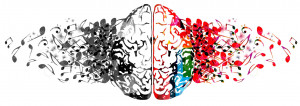
Volume 1 of a new journal! Or should I say yet another new journal? Why? For a British academic who has worked in music education, there is certainly no shortage of journals. I believe I once made the point that there were more music education research journals (a "peripheral frill") than mathematics education journals (an "important core subject"). However, my own work has always been at the 'peripheral frill' end of the music education mainstream. With adolescent vocal identity and boys' choirs as my research field, it has been remarkably difficult to find a journal in which such topics might be more mainstream. The consequence has been a tendency to look across the Atlantic, publishing in American journals, including those hosted by the American Choral Directors Association (ACDA) and the National Association of Teachers of Singing (NATS). It was through familiarity with such journals, that I came to realise that I am by no means unique. There is actually quite a vibrant global community of scholars in the field!
Now, dare I say it during the year in which the UK leaves the EU, the last thing we want is isolationism. Yes, the UK, and England in particular, has a 'choral tradition' that is to some extent globally acknowledged. Is it somehow above all others? Absolutely not, though social media are not without those who seem to think so. Is it research informed? In some ways, yes. There is a strong tradition of musicological scholarship in the UK although it doesn't seem to penetrate choral practice as much as it might and the lead time between scholarly research and research-informed performance has been long. The English tradition that to conduct a cathedral choir one needs to know little about voices so long as one is an expert in organ playing is breaking down. This welcome change is research driven, but the research has come from across the Atlantic! Language remains a barrier to including similar research from Germany and elsewhere in Europe and it is a barrier we must seek to overcome.
So, it is right that the Association of British Choral Directors should play a part in bringing UK based choral research to the attention of UK based choral practitioners, whilst supporting, encouraging and nurturing the UK based choral research community. However, this can only be part of a global movement that communicates insights from the rest of the world to British practitioners. At an entirely practical level our outlook needs to be international because abcd is so much smaller than ACDA. When the topic is highly specialized, the area in which knowledge is discovered and exchanged has to be correspondingly large. Here, with an aspiration to overcome the language barriers of Europe, we can differ from ACDA. In my own field, there is so much to learn from European boys' choirs (and there are many very fine ones.) Dare I say it, the same must be true for most other aspects of choral singing.
The topics that the journal intends to cover are quite diverse. The stated list includes:
No theme was given for Volume 1. It is probably too early to make any claims that the journal reflects where the centres of choral research interest currently are. However, we do have several contributions dealing with the topic of pitch, intonation and pitch drift. It is a gratifying and perhaps a happy coincidence that different research traditions are represented through this obviously important topic. The quantitative, experimentally based and qualitative, language-based traditions complement each other well.
Similarly, we have two papers dealing with various aspects of communication between conductor and singers. Gesture, imagery and metaphor have long dominated the teaching of singing as well as the art of choir rehearsal and conducting. This aspect of our work has hitherto proved the most impenetrable to measurement and quantification. I remember grappling with it when writing one of my books and wishing that there were more research papers available to help me out. Also difficult to quantify is the effect of warm-ups on singers. There is no shortage of assertion that warm-ups are important, but objective evidence of the randomised control trial variety is thin on the ground. A paper on children's reactions to warm-ups does not answer this need, but it is very welcome for drawing attention to the importance of involving children in research. No more than any other singer is a child a passive recipient of the conductor's will.
Finally, the boys! My own contribution spans the territory between pitching accuracy and adolescent development whilst we also have the latest thinking on how long boys beginning puberty should be retained as treble choristers (not for long is the short answer). I await with considerable interest and anticipation the response to the call for papers on girls in Volume 2 because all this comes at a time when the number of girls in English cathedral choirs has surpassed (just) the number of boys - a trend that may well continue. The background noise of sterile, gender arguments about chorister timbre often obscures the level of difference between one boys' choir and another. I have long known about Britten's preference for the sound of 'street boys' over the refined chorister sound, but an analytical paper on Britten and the 'Ragazzo sound' that came just in time for inclusion was a revelation. Is there, could there be, a girl equivalent of 'Ragazzo' and who would compose for it? The journal awaits your submissions...
Martin Ashley
Editor-in-Chief